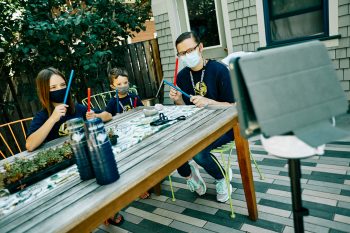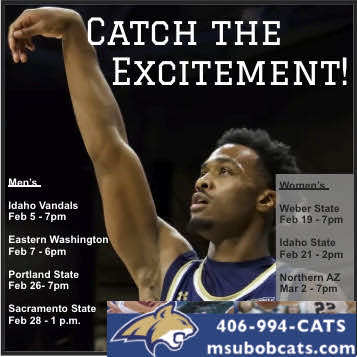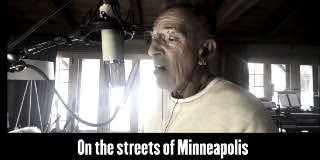New summer day camp at MSU aims to add resource to community
by Anne Cantrell, MSU News Service
BOZEMAN — Last summer, Nicole Wanago and her husband searched for a summer day camp for their son, Perry, to attend. Perry, who is now 7 and has Down syndrome, wanted to interact with his peers, but Nicole said they couldn’t find a camp in Bozeman that would be a good match for his needs.
“What he lost (by not going to camp) was that ability to interact with peers, that ability to be independent,” she said. “Every little kiddo wants that. … At one point last summer, he was sitting on our sidewalk, bawling and saying ‘friends.’ He wanted to be with friends.”
That’s partly why the Wanagos were thrilled to learn that Montana State University planned to launch its Inclusive Community Camp this summer. They chose to enroll both Perry and his older brother, Nic, who is 9 and going into the fourth grade.
“The Inclusive Community Camp is a very intentional, first steps summer camp experience designed to fill a void in our community,” said Jody Bartz, assistant professor in the MSU College of Education, Health and Human Development’s Department of Health and Human Development who organized the camp along with Jamie O’Callaghan from the Department of Education. “Summer 2020 was our pilot year and has allowed us the opportunity to design the camp and meet the program needs for our MSU teacher candidates, who guided the campers.”
Bartz said the camp was carefully designed both for children with additional support needs – including those with Down syndrome and autism – and for those without additional support needs. The camp was originally planned as a weeklong summer day camp in Bozeman, but organizers moved it to a mostly virtual format because of COVID-19.

Jessica Cassel, an elementary education student at Montana State University, leads a cup-stacking activity for Inclusive Community Camp campers, Amelia and Sawyer, Thursday, July 30, 2020, in Bozeman, Mont., as fellow camp guides Elise Reed and Shannah Eichel, participate in the activities remotely and are seen through a collaborative mobile device. The camp’s mission is to help grade-school students be more inclusive with their peers with disabilities and assist MSU teacher candidates support the campers in active and creative exercises.
MSU Photo by Adrian Sanchez-Gonzalez
The camp was held the last week of July, with campers and camp guides meeting for two hours each day of the week. Twenty-two campers ranging in age from 6 to 10 – approximately half of whom Bartz said have additional support needs – participated from 18 camp locations across Montana, as well as remotely from California, Minnesota, Colorado and Oregon. Twenty-seven MSU students served as camp guides.
MSU faculty members Jacob Robidou and Kris Olsen created activities for each day of camp focused on art education and health enhancement. Nicole Wanago said Perry particularly enjoyed an activity where they made puppets, while Nic enjoyed movement activities such as soccer. And both enjoyed a music activity; Nicole said Perry enjoyed dancing while Nic worked to drum out the rhythm to a song.
Students in the MSU College of Education who are studying to become teachers through the college’s online Master of Arts in Teaching program, as well as special education teacher candidates, served as camp guides, with one or more guides being matched to each camper. Some of the campers and camp guides interacted throughout the week via an online platform, while other campers and camp guides met in a location where they could safely employ social distancing and other safety measures, such as at a local playground.
To aid in remote interactions, the college used a grant from the Montana Rural Teacher Project to secure SWIVL robots, which can track movement and which the campers and camp guides used for observations and video connections. In addition, campers had access to iPads from the College of Education, Health and Human Development to use with their activities.
Students who served as camp guides reported that the experience was valuable.
Ben Deremiah, a graduate student pursuing a master’s degree in teaching with an elementary education endorsement, said that his favorite part of the camp was the opportunity to apply the knowledge and skills that he has learned in his graduate program.
“Getting to connect with students has been an overwhelmingly rewarding and positive experience,” he said.
He added that using remote technologies, such as the SWIVL robots and Webex, was helpful.
“The technology that we have utilized for (the Inclusive Community Camp) has provided me with a wealth of knowledge to effectively connect with parents, peers and students, as well as the ability to teach lessons virtually and in person.”
Sierra Fisher-Dykman, a senior studying elementary education with a concentration in special education, said working as a camp guide reminded her “to take a step back and look at what truly matters in working with the kids.
“In this environment, a day’s success isn’t necessarily measured by fulfilling every aspect of the lesson plan,” Fisher-Dykman said. “Our success is measured by the smiles on the kids’ faces and the learning that has happened throughout the day.”
Heather Hildreth’s 8-year-old son, Kaden, who has Down syndrome, and her 5-year-old daughter, Kynlinn, both participated in the camp. She said she was interested in the camp because it took into consideration Kaden’s developmental and physical delays.
“I liked that MSU students who were in (special education) were going to be the guides,” she said. “The fact that this was a selective activity for them made me feel confident that they had a desire to work with my son.”
The camp is a taste of what the future can hold for him, she added.
“In order for my son to succeed in life, he will need a community that supports him,” Hildreth said. “… I am thankful for the individuals who see a future working with children and adults like my son.”
Nicole Wanago also expressed appreciation.
“When this camp came up, it was incredibly exciting to feel like – even for a week – there was an opportunity for (Perry) to be like other kids and to have access to a camp environment,” she said. “We are so grateful for that opportunity.” •










